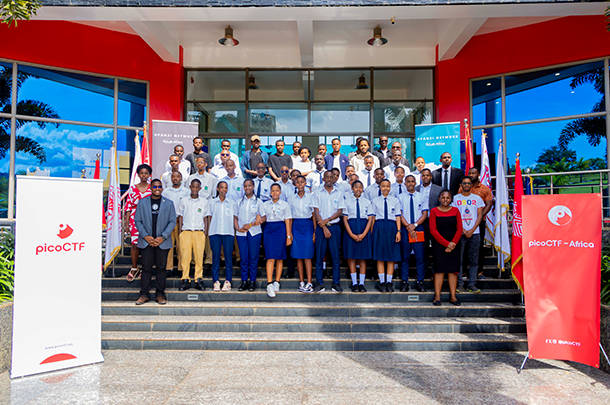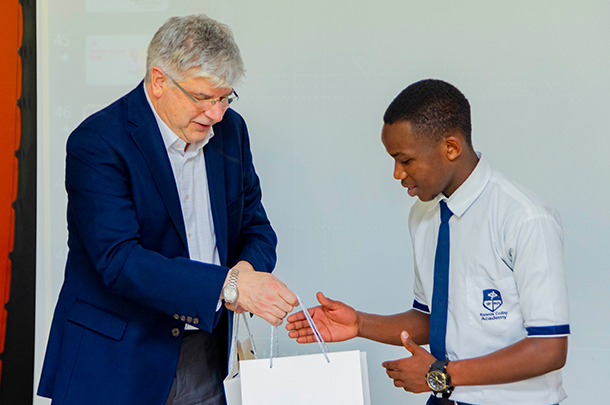picoCTF-Africa inspires participants to learn cybersecurity
Sarah Maenner
Jun 5, 2024
From March 12–26, participants from around the world, including across Africa, competed in a "capture the flag" tournament called picoCTF in which they learned about hacking and the principles of cybersecurity. Through the competition and other activities offered by picoCTF, participants improve in several critical skills, such as reverse engineering, forensics, web security, cryptography, and critical thinking.
picoCTF, from Carnegie Mellon University’s CyLab Security and Privacy Institute, has been running since 2013 and is now the largest hacking competition in the world. While still part of the greater annual competition, several regions, such as Africa, have their own leaderboards so participants from the same region can more directly compete with one another. The African leaderboard is in its third year, and the African teams are already a force to be reckoned with: the highest-scoring teams of the African leaderboard also scored within the top 50 teams of the overall competition. Of the over 18,000 participants in the international competition this year, 1,500 were from African countries.

"We are proud to see the picoCTF-Africa competition gaining popularity across the continent," says Assane Gueye, co-director of CyLab-Africa and the Upanzi Network. "This year, the CyLab-Africa team worked with high schools and universities across the continent, including Rwanda, Ethiopia, Sierra Leone, Benin, Uganda, and Botswana. They saw incredible interest from these areas and we look forward to seeing the competition continue to grow."

As Africa grows into a digital future, it is vital that digital systems and infrastructure are kept safe from malicious attacks. However, there are currently not enough professionals on the continent who have the skills necessary to prevent or counter attack. Through picoCTF, the field is being introduced to these young participants, and they are encouraged to consider careers in it to build interest in the field and to address the skills gap.
When asked about the impact picoCTF had on teaching high school, Jean Donald Munyeshuri, of Lycée de Kigali, said, "picoCTF has enabled my students to engage in everyday learning and take theory to practice. More and more students, even outside the computer science class have formed and joined the ICT club in the three years. In terms of learning, my students have become more independent in their learning in that they can investigate and solve more complex problems on their own."
The awards ceremony for the 2024 competition took place on May 14.
Winners of the African leaderboard
Top three undergraduate teams in Africa
- LocalMen
- St Lawrence University Uganda 2
- no_reply
Top three high school teams in Africa
- RwandaCondingAcademy2
- RCA
- Shield
Women in cybersecurity
- RCA
Rwanda-only leaderboard
Undergraduate
- Xusers
- Winners_team
Women in cybersecurity
- Winners_team
High school
- RwandaCondingAcademy2
- RCA
Botswana-only leaderboard
Undergraduate
- The New-Kid-In-the-Block
- f1ow3r_Gard3n
- Binary Mavericks
Because of picoCTF’s educational mission, it is more than just the annual spring competition. It offers year-round non-competitive practice opportunities through picoGym, which includes challenges from past competition years. It also includes brand-new challenges devised by Carnegie Mellon students, including those from CMU-Africa.